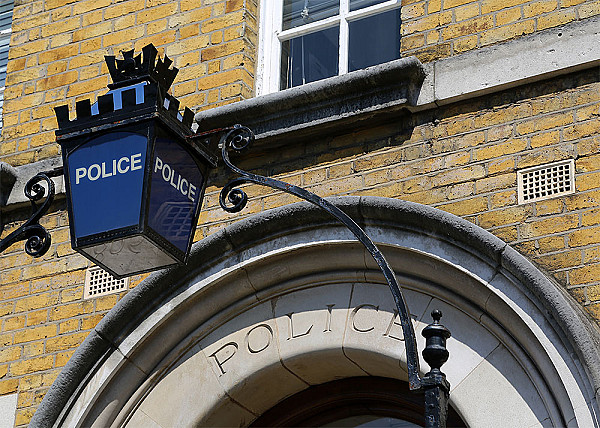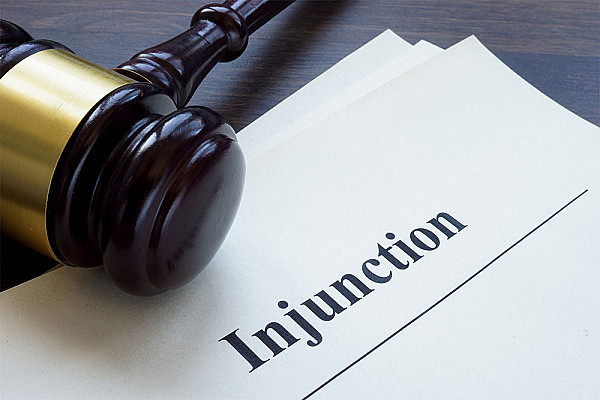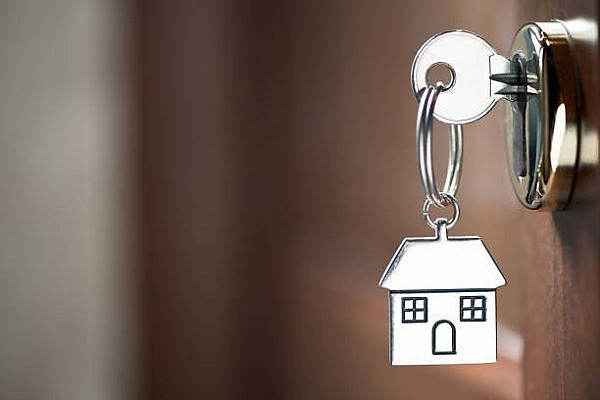Rights and Options
If you are experiencing domestic abuse, stalking, or harassment, it's crucial to know your rights and options. Here, we outline some common concerns and available options for victims of domestic abuse.
The Police and Criminal Law
 Domestic abuse, stalking, and harassment are against the law. You can report abuse to the police by calling 999 in an emergency or 101 in a non-emergency. You can also visit a police station in person. Inform the police about the incident and any safety concerns for yourself or others.
Domestic abuse, stalking, and harassment are against the law. You can report abuse to the police by calling 999 in an emergency or 101 in a non-emergency. You can also visit a police station in person. Inform the police about the incident and any safety concerns for yourself or others.
If the police arrest and charge the abuser, they will decide whether to keep them in custody or release them on bail, usually with conditions to protect you from further abuse. The Crown Prosecution Service or the police will decide whether to prosecute the abuser. If prosecuted, you might need to go to court. Support is available from various organisations for victims of domestic abuse, including the Citizens Advice Witness Service.
The Domestic Violence Disclosure Scheme (Clare’s Law)
The Domestic Violence Disclosure Scheme, also known as Clare’s Law, allows the police to disclose certain information about a partner’s or ex-partner’s previous abusive or violent behaviour where it is necessary and proportionate to do so. Named after Clare Wood, who was murdered by her boyfriend in 2009, this scheme helps protect potential victims.
Under Clare’s Law, you can:
• Apply for information about your current or ex-partner if you’re worried that they may have a history of abuse.
• Request information about the current or ex-partner of a friend or relative if you’re concerned that they might be at risk.
For more information, visit the Lincolnshire Police website.
Domestic Violence Protection Notices and Orders
Domestic Violence Protection Notices (DVPNs) and Domestic Violence Protection Orders (DVPOs) are legal tools that provide immediate protection to individuals who are at risk of domestic violence.
DVPNs
A DVPN is an emergency notice issued by the police when there is sufficient evidence that domestic violence has occurred or is likely to occur.
The notice:
- Prohibits the suspected abuser from returning to the home or having contact with the victim.
- Lasts for up to 48 hours, allowing time for further investigation or legal action to be taken.
DVPOs
If a DVPN has been issued, the police may apply to the court for a DVPO. A DVPO is a court order that can provide up to 28 days of protection for the victim. This allows the victim a degree of breathing space to consider their options.
The Order:
- Restricts the abuser from returning to the home or contacting the victim, typically for a period of 14 to 28 days.
- Gives the victim time to seek further support or legal protections, such as occupation order or non-molestation order.
DVPOs offer additional security to individuals facing domestic violence and help prevent further harm while ensuring the victim has time to make necessary arrangements for their safety.
You can click here for further information about DVPNs and DVPOs.
Restraining Orders
A restraining order is a court order that prohibits the abuser from contacting you or coming near your home. These orders are made by criminal courts, often after a criminal conviction for offences like assault or harassment. They can be issued even if the abuser is found ‘not guilty’. Breaching a restraining order is a criminal offence, and the police can arrest the abuser if they believe there has been a breach.
You cannot apply for a restraining order yourself, but you can apply for a civil injunction, such as a non-molestation order which prohibits the abuser from certain actions.
Occupation and Non-Molestation Order
Occupation Order
 An occupation order is a legal tool designed to protect individuals experiencing domestic abuse. It is a court order that determines who has the right to live in or access a home. Occupation orders are typically sought by individuals who are at risk of harm from someone they live with.
An occupation order is a legal tool designed to protect individuals experiencing domestic abuse. It is a court order that determines who has the right to live in or access a home. Occupation orders are typically sought by individuals who are at risk of harm from someone they live with.
The order can:
Remove the abuser from the home: The court can order that the perpetrator of domestic abuse must leave the shared residence, even if they are the legal owner or tenant.
Restrict the abuser’s access: The court can prevent the abuser from entering certain areas of the home or from coming near the victim.
Occupation orders are typically temporary, but they can be extended or modified depending on the circumstances. You can apply for the order on your own or with the help of a solicitor or another legal professional. It is always advisable, where possible, to seek advice from someone legally trained before proceeding with an application for an occupation order.
Non-Molestation Orders
There are two types of Non-Molestation Orders:
Emergency Non-Molestation Orders and Non-Molestation Orders on Notice. Both provide protection from domestic abuse, but they differ in how quickly they can be obtained and the process involved.
Emergency Non-Molestation Order
Purpose: This order provides immediate protection to someone at risk of harm or domestic violence. It is designed to give swift relief when there is an urgent need to prevent harm.
Court Process: The order is granted without notifying the abuser in advance. The court can issue it on the same day you apply, based on the risk of harm to you or your children.
Duration: Emergency Non-Molestation Orders are typically temporary, lasting for a short period until a full hearing can take place.
Effect: It offers immediate legal protection, ensuring the abuser is prevented from contacting you or coming near you until a more permanent order is considered.
Non-Molestation Order on Notice
Purpose: This order provides protection but is not as urgent as the emergency order. It is usually used when there is ongoing abuse, but immediate harm is not imminent.
Court Process: The abuser is given notice of the application for the order, meaning they are informed about the court hearing and can present their side. A hearing will typically be scheduled for a future date.
Duration: If granted, the Non-Molestation Order can last for a specified period (e.g., 6 months or longer) and may be extended, depending on the circumstances.
Effect: Once granted, it prohibits the abuser from using violence, harassment, or threats against you and can also prevent them from contacting you.
Breach of a Non-Molestation Order or Occupation Order
If the abuser breaks the conditions of the order (e.g., by contacting you), they can be arrested and face legal consequences, including imprisonment. To report a breach, you should contact the Police; if it's an emergency situation, dial 999 and non-emergency 101. If you have a solicitor/legal representative, should also notify them of the breach.
How to Apply
There are different ways to apply for a Non-Molestation Order and/or Occupation Order. You can seek assistance from a solicitor or a specialist service like the National Centre for Domestic Violence (NCDV) or apply directly through the court.
1. Applying Through a Solicitor
Role of a Solicitor: A solicitor will guide you through the legal process and help you prepare the necessary documents. They will ensure that all relevant evidence is presented to the court, and they can represent you during any hearings.
How to Apply: You can contact a solicitor specialising in family law or domestic abuse.
Costs: Solicitors typically charge for their services, but if you meet certain criteria, you may be eligible for legal aid to cover some or all of the costs.
2. Applying Through Specialist Services (such as NCDV)
What is the NCDV: The NCDV is a charity that provides free legal services for individuals experiencing domestic violence.
How to Apply: The NCDV offers a free, fast emergency injunction service to those at risk of domestic abuse regardless of their financial situation, ethnicity, gender or sexuality.
Process: You can contact the NCDV by phone, email, or through their website to make a self-referral.
Similar services:
FLOWS - Finding Legal Options for Women Survivors
3. Applying Directly Through The Court
Apply online using Court Nav
RCJ Advice’s CourtNav is an online tool designed to help you if you are completing an application for a non-molestation and/or occupation order. Before you apply, you’ll need to create an account.
Apply by email, post or in person
If you prefer, you can apply directly to the court, via email, post or drop it off in person.
You'll need to fill out the relevant forms (FL401) and provide details about the abuse you're experiencing. Write a supporting statement that explains what happened to you. You can either use the template or you can write your own.
It's helpful to include supporting evidence (e.g., police reports, medical records, witness statements).
If you do not wish your address or phone number to be disclosed to the Respondent, you should complete a form C8, making sure you make it clear that your address is confidential.
Email, post or hand in your documents to your local family court. There is no fee to be paid.
What Happens Next: After submitting the application, the court will schedule a hearing, and the abuser will be notified. In urgent cases, you can apply for an Emergency Non-Molestation Order, which can be granted quickly, sometimes on the same day.
Legal Aid
Legal aid may be available to help cover the costs of applying for a Non-Molestation and Occupation Order and legal representation, depending on your financial situation and the nature of the case.
There were major changes to legal aid made in 2013. To access legal aid, you will need to show that you meet a Means Test (your income, savings and capital must be below a certain threshold), and that you meet the Merit Test (your case is strong enough with sufficient supporting evidence) and covered by legal aid (this is called scope).
You may also be entitled to legal aid for a private family law dispute (Child Arrangements Order, Prohibited Steps Order or Specific Issue Order) if you have been victim of domestic abuse or violence and you can’t afford to pay legal costs.
Click here to check if you might be able to get legal aid.
How to Apply for Legal Aid: If you're applying through a solicitor, they will assess whether you qualify for legal aid. If you are applying through the NCDV or similar service, they can help you understand whether you are eligible for legal aid and assist with the application.
Coverage: Legal aid can help with solicitor fees, court costs, and other related expenses. If you're eligible, you may receive full or partial funding for the application process.
Child Arrangements
Child Arrangements Orders
 A Child Arrangements Order specifies where the child should live and how they will spend time with each parent. When parents can’t agree, a Child Arrangements Order can be sought from the court to resolve the dispute.
A Child Arrangements Order specifies where the child should live and how they will spend time with each parent. When parents can’t agree, a Child Arrangements Order can be sought from the court to resolve the dispute.
In cases involving domestic abuse, one parent can request an order that limits or controls contact to ensure the safety of both the child and the parent.
The process of applying for a Child Arrangements Order typically follows these steps:
Mediation: Normally, parents must attend a MIAM (Mediation Information and Assessment Meeting), but if domestic abuse is involved, you are exempt from this step.
Application: You will submit your application to the court, if possible with the help of a solicitor, but you can do it without (see details below).
Court Hearing: The other parent will be notified and the case will be listed for a hearing.
Safeguarding: Both parents will undergo safeguarding checks, including police and social services involvement.
First Hearing: At the first hearing, the court will decide how to proceed and whether any temporary orders are necessary.
Written Statement: You can submit a written statement detailing any domestic abuse and its impact on the child.
The court will ensure that any decision made prioritises the safety of the child.
In addition to a Child Arrangements Order, the court may also make:
Specific Issue Orders: To resolve specific aspects of the child’s care, such as school choice or surname changes.
Prohibited Steps Orders: To prevent certain actions, such as taking the child out of the country.
https://childlawadvice.org.uk/information-pages/domestic-abuse
Where possible it's advisable to seek support from a family law solicitor to help you navigate the process of applying to the court for a Child Arrangements Order.
Depending on your circumstances, if you are a victim of domestic abuse, you may be entitled to legal aid, so it is worth reaching out to a Family Law Solicitor, one that offers a free initial consultation to explore this.
However, for those not entitled to legal aid and unable to pay privately for legal representation, it is possible to make an application to the court without a solicitor.
Click here for further information.
Help With Housing
 If you need to leave your home due to domestic abuse and have nowhere to go, your local council’s homelessness department can help. You do not need to be sleeping on the street to get help. The council should consider you homeless if you cannot live in your current accommodation due to a risk of abuse.
If you need to leave your home due to domestic abuse and have nowhere to go, your local council’s homelessness department can help. You do not need to be sleeping on the street to get help. The council should consider you homeless if you cannot live in your current accommodation due to a risk of abuse.
There are several options available for domestic abuse victims who need help with housing:
Refuges - Refuges are safe houses that provide temporary accommodation for those who are fleeing domestic abuse. They offer a safe, supportive environment where residents can access advocacy, emotional and practical support to help them rebuild their lives. Click here for further information.
Local authority housing - Local authorities can help if you are homeless or at risk of homelessness due to domestic abuse. This includes providing emergency accommodations like hotels, bed and breakfasts and refuge, as well as helping you find more permanent housing.
In cases of domestic abuse, a person has the right to apply for housing to any local authority in the UK, regardless of whether they have a local connection or not. This is because the risk of violence and abuse means that it may not be safe for the person to stay in their local area.
Housing associations - Housing associations are organisations that provide affordable housing to people in need. Some housing associations have specific properties or programs that are designed for domestic abuse survivors.
Private renting - If you have the means to rent privately, you may be able to find a landlord who is willing to work with you to provide a safe and secure home.
Staying with family or friends - You may want to ask friends or family if you can stay with them temporarily if it is safe to do so. However, bear in mind that you might be more accessible to your abuser in these circumstances.
Occupation order - If you want to stay in your own home, you may want to consider an injunction to protect yourself and to keep the abuser away.
Follow the link for information regarding housing options. https://www.nationaldahelpline.org.uk/help-with-housing
Finances
For information about financial abuse and support for survivors facing financial hardship, visit the Women’s Aid Survivors Handbook linked below.
https://www.womensaid.org.uk/information-support/the-survivors-handbook/i-need-ongoing-support/
